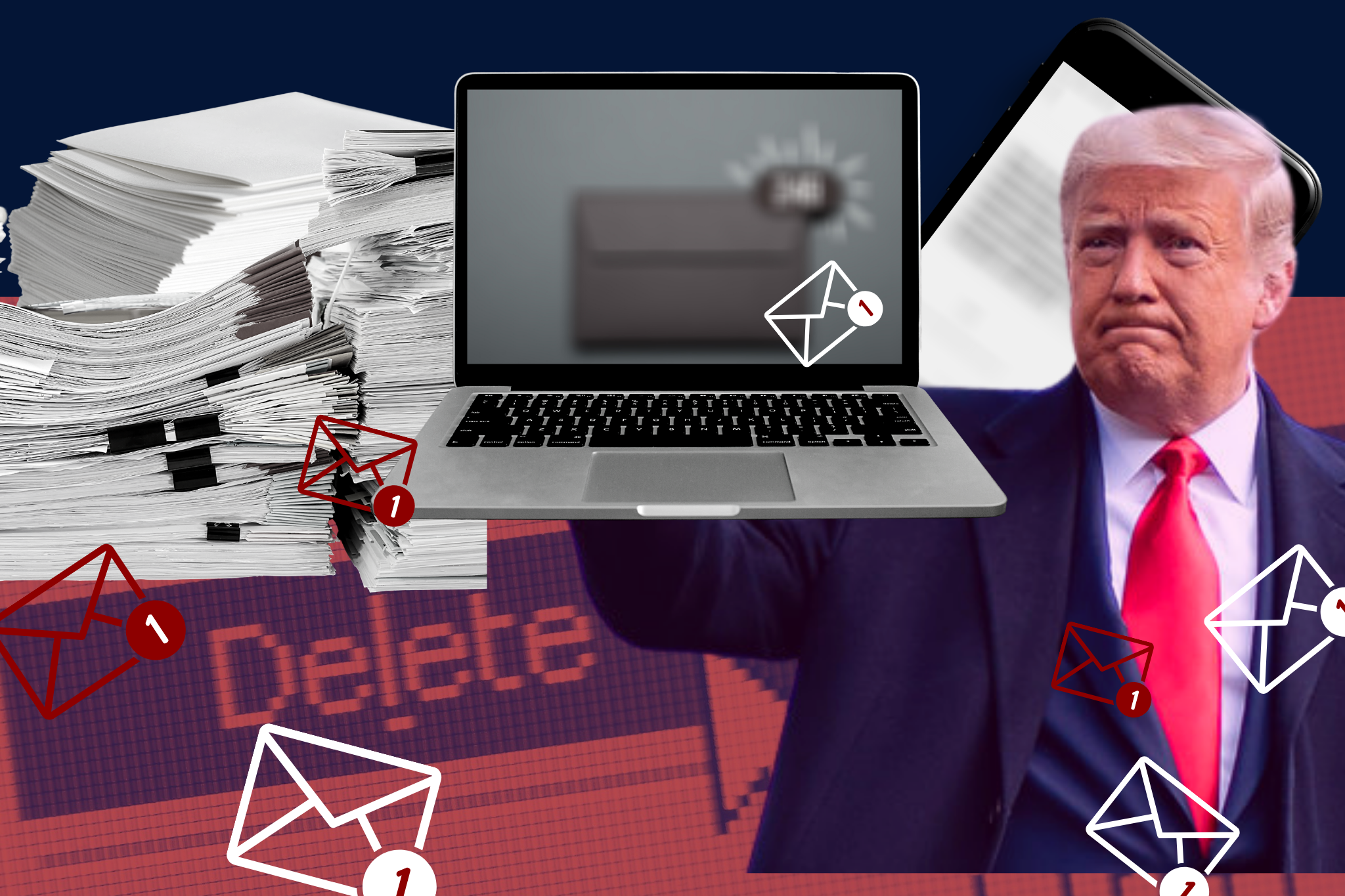American Oversight Launches Document Preservation Initiative
U.S. law requires the preservation of White House and federal agency records. A new American Oversight initiative will work to ensure the Trump administration complies.

American Oversight is announcing a document preservation initiative to ensure the Trump administration complies with federal public record laws. We’ve previously obtained more than 800,000 pages of documents from the Trump administration through public records requests and lawsuits, and are prepared to litigate under the Freedom of Information Act and the Federal Records Act to ensure that outgoing Trump administration officials do not remove or destroy documents.
American Oversight has active FOIA requests or litigation pending at more than three dozen agencies, seeking records including senior officials’ calendar entries, email communications, and text messages on topics ranging from the Covid-19 pandemic response to the spending of taxpayer dollars at Trump-owned properties.
The Federal Records Act and the Presidential Records Act require federal agencies and the White House to preserve substantive documents. These government records are key building blocks in our historical record that provide transparency about government actions and power oversight investigations into misconduct or abuse. Such documents are also important for a smooth transition of power: Knowing past policy decisions helps officials understand ongoing government operations.
On Tuesday, the chairs of multiple committees in the House of Representatives wrote to the White House and to more than 50 federal agencies, directing them to comply with federal recordkeeping laws.
“The Trump administration has spent four years fighting tooth and nail to block any public scrutiny of its actions, and Congress is absolutely right to be on guard for any potential document destruction by outgoing Trump appointees,” said Austin Evers, executive director of American Oversight. “The public deserves the full truth about this administration’s many misdeeds, from Ukraine to the mishandling of the coronavirus pandemic, and that starts by making sure the evidence is preserved.”
Destroying federal records is illegal, but many observers are concerned about the Trump administration’s compliance with these laws.
American Oversight’s efforts have already uncovered a number of instances in which senior officials’ used personal email accounts for conducting government work, raising questions about the administration’s commitment to record preservation. This fall, American Oversight reported on nearly 400 pages of communications from Secretary of State Mike Pompeo’s tenure as head of the Central Intelligence Agency that showed his repeated use of his personal email for official business while CIA director. In a letter sent to the National Archives and Records Administration (NARA), the CIA, and the State Department on Oct. 22, American Oversight urged the agencies to quickly move to preserve any records that may not have already been turned over.
NARA informed us on Nov. 4 that it had requested the CIA to fully account for Pompeo’s use of private email and to ensure that all records were properly preserved in compliance with the law.
But Pompeo is not alone. News reports and documents obtained by American Oversight have shown key officials engaging in similar behavior, from other cabinet members like Education Secretary Betsy DeVos and former VA Secretary David Shulkin to multiple senior political appointees.
Trump family members and White House aides Jared Kushner and Ivanka Trump also extensively used a personal email domain to conduct government business, becoming the subject of an internal White House probe. Additionally, Kushner has reportedly used WhatsApp, a mobile app with security features that could help evade compliance with record preservation, for government business. American Oversight has filed multiple open records requests related to his use of the app.
Some senior officials, such as Stephen Miller, reportedly rely on telephone conversations to avoid creating document trails. And Trump himself has already shown flagrant disrespect for record preservation laws through his frequent attempts to destroy records by tearing them up — leading to taxpayer funds paying staffers to painstakingly tape documents back together for the National Archives.
The preservation of the Trump administration’s records is essential not just for historical reasons, but also to ensure long-term accountability. Follow our investigation into the administration’s compliance with document preservation laws here.